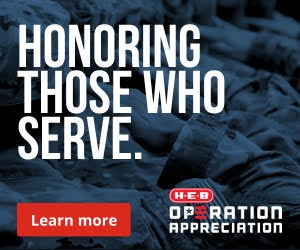San Antonio Icon
Interestingly, John Inman was born in 1896, the year that the infamous Plessey v. Ferguson Supreme Court case made segregation legal. John Inman was a fixture in the civil and human rights movement in San Antonio and across the city. John Inman graduated from theological seminary in the 1930’s but according to his daughter Janice Inman-Joseph, chose “teaching instead of preaching.” John Inman fought against segregation in San Antonio by participating in protests at segregated facilities in his early years and never stopped even as he approached later years. Inman became a barber by profession, allowing him to teach his customers about civil and human rights. One could go to his barbershop and pick up material concerning the latest news in the black community, both locally and nationally. He was always willing to discuss the inequalities that existed in the city and across the country and the importance of action to address the plight of people.
Inman’s community barber shop on S. Hackberry Street was across the street from Mount Zion First Baptist Church and where he was an active member. According to researcher Alwyn Barr, in quoting A.C. Sutton, John Inman was always in the lead for civil rights. Sutton said, “Anything that looked like a movement, he would be a part of.” After authorities discovered that Inman was a revolutionary they removed his barber shops from the military bases which caused economic hardships for his family. However, much to the displeasure of segregationists Inman kept up the fight for human dignity. In 1928, John Inman became the president of the San Antonio Branch of the NAACP. He fought for infrastructure improvements on the East Side and carried out a campaign to end the poll tax.
John Inman was allied with Rev. Claude Black and the G. J. Sutton family. In the 1930’s and 1940’s, the Black community was active in encouraging voting by holding mock “Sepia Mayoral Campaigns,” which are recorded in the Black Press (San Antonio Register), and “Anti-Poll Tax Rallies” on the east and west sides of the city (Register, March 31, 1939). John Inman was also a local labor activist and participated in these mock mayoral campaigns which were organized by what was then called the Negro Chamber of Commerce. He was actually elected in a mock mayoral campaign in an effort to show that Blacks deserved to hold the position of mayor in San Antonio during the era of segregation. John Inman was a fighter for social justice for many years. John Inman, a Black revolutionary during the Bellinger era, lived for a long time, and fought for positive change for decades. He was an advocate of worker’s rights and supported workers of all ethnic groups including Mexican American Pecan Shellers that carried out a strike for better working conditions under the leadership of Emma Tenayuca. John Inman was active in a black and brown coalition that was organized into the “Workers Alliance.” Inman was able to organize black support for the Pecan Sheller’s Union and his help was invaluable. Shamefully his organizing success has gone uncelebrated.
Inman’s influence would be felt years later when he would conduct political education classes for San Antonio SNCC members, civil rights workers, and others in the 1960s. He never gave up and was quoted in the community by many people who remembered that he said, “The harder they fought me the harder I fought back. I was never afraid of risking my life for the cause of justice and freedom.” In the 1970s, John Inman was a member of the San Antonio Committee to Free Angela Davis and helped to organize the largest rally in the country of close to 3,000 for her freedom at La Villita Assembly Hall. John Inman passed away in 1996 at the age of 100.









